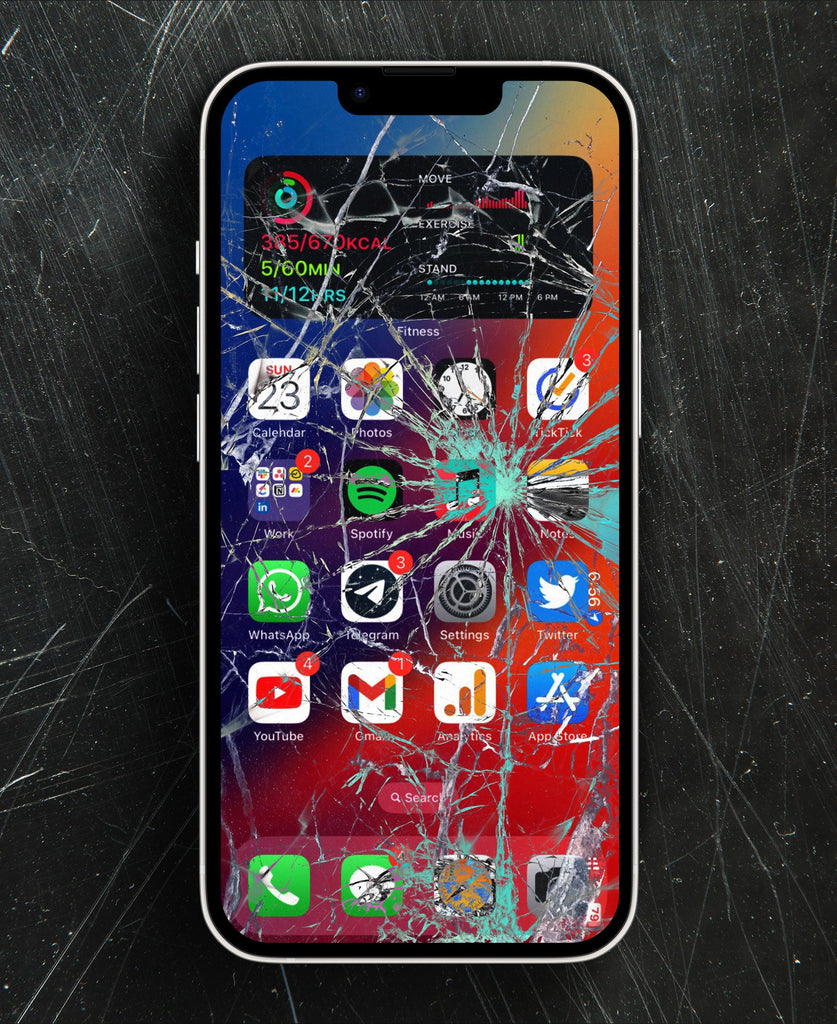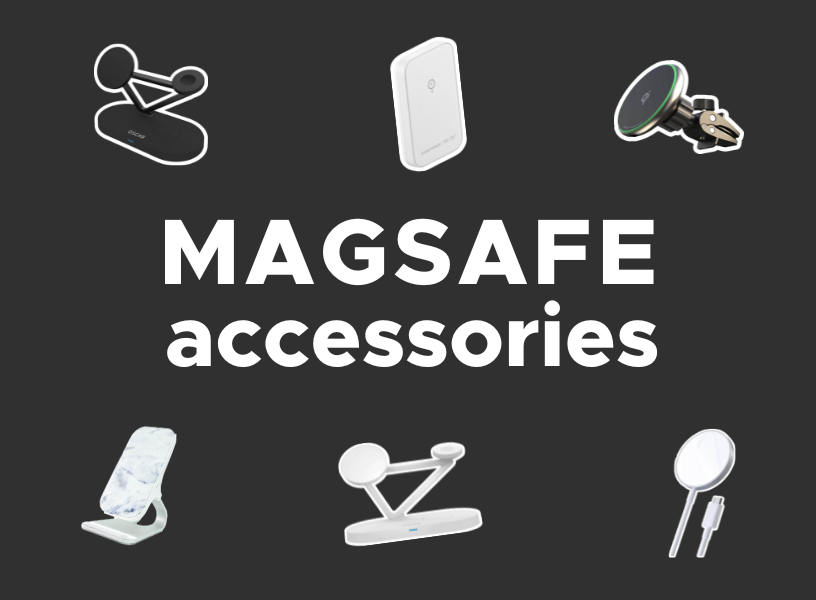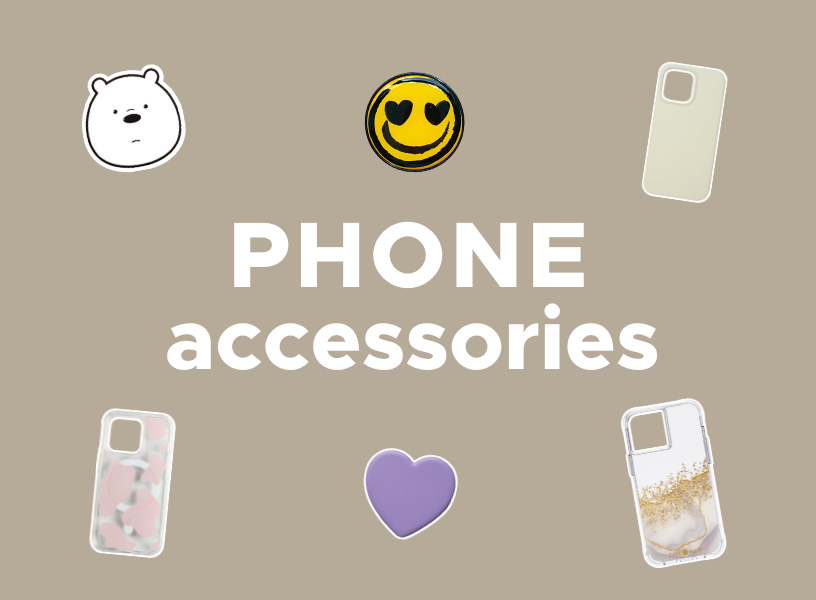Do I need to clean my phone?
You probably use your phone multiple times a day—checking emails, scrolling through social media, sending messages, making calls, and more. But have you ever stopped to think about just how dirty your phone might be? The answer might surprise you.
Phones are one of the dirtiest objects we regularly come into contact with, and they can harbor a surprising amount of germs, bacteria, and viruses. Here's why your phone could be far dirtier than you think:
1. Phones Are Constantly Exposed to Bacteria
Think about how often you touch your phone—and where your hands have been. You pick up your phone after handling food, touching public surfaces, or after shaking hands. Each time you touch your phone, you're transferring germs from whatever you've just touched onto your device. In fact, studies have shown that your phone can carry up to 10 times more bacteria than a toilet seat.
2. Phones Are High-Touch, High-Risk Devices
Unlike many other items we use, our phones are constantly in contact with our skin, face, and hands. We make calls, text, swipe, and tap on them all day. The most common areas where bacteria build up are the screen, buttons, and charging port. Our fingers leave behind sweat, oils, and dirt, which accumulate over time, especially on the screen.
3. Phones Are Exposed to Moisture
Whether you're sweating on a hot day, using your phone while drinking a cup of coffee, or talking on the phone while walking in the rain, moisture can seep into your device. This moisture, combined with dirt and oils from your skin, creates the perfect breeding ground for bacteria, fungi, and other microbes.
4. Phones Aren't Always Cleaned Properly
Many of us wipe our phones with our shirt sleeves or a random cloth, but this rarely removes all the dirt, oils, and bacteria. Phones should be deep cleaned regularly, as simply wiping with a cloth isn’t enough to ensure a germ-free device. Many areas on your phone, such as around buttons, charging ports, and speaker grills, can harbor dirt and bacteria that are difficult to reach with a regular wipe.
5. Phones Are Shared Frequently
Whether you're handing your phone to a friend to look at a picture, passing it to a colleague to show an app, or letting your child use it to play games, the more people that handle your phone, the higher the risk of germs spreading. This is especially concerning if anyone you're sharing it with is sick, as germs can spread easily from one person to another through high-contact objects like smartphones.
What Types of Germs Are on Your Phone?
-
Bacteria: Phones are a breeding ground for bacteria, including potentially harmful ones like E. coli and Staphylococcus. These bacteria can come from your hands, food, or even your face.
-
Viruses: With phones being so close to your mouth and nose, viruses such as the flu, common cold, or even COVID-19 can survive on the surface, especially if proper hygiene practices aren’t followed.
-
Fungi: Moisture buildup on your phone can lead to fungal growth, contributing to the overall "dirtiness" of the device.
-
Oils and Dirt: Your phone screen is regularly exposed to oils from your hands, face, and hair. These oils attract dirt, dust, and other particles, which can make your phone appear smudged and unclean.
The Bottom Line:
Your phone is much dirtier than you might think, and regular cleaning is essential to keep it free from harmful bacteria, viruses, and other germs. If you're not cleaning your phone professionally, it’s time to start. Using professional phone cleaning services ensures your device is thoroughly disinfected, keeping it hygienic and extending its lifespan.
Remember, you don’t just want your phone to look clean—you want it to be clean. A simple clean can help protect your health, keep your phone in peak condition, and prevent long-term damage from bacteria buildup.
Ready to clean your phone? Click here to book a professional phone cleaning service and ensure your device is germ-free and working at its best! Visit one of Happytel's 50+ locations across Australia and New Zealand. Use our store locator to get started and get your iPhone cleaned today.

How to Remove Malware Pop-Ups on Android Samsung, Google Pixel, Nokia Phones Is your Android showing constant pop-ups or ads? Learn how to remove malware from your Android phone safely. Pop-Up Hell: Ending the Android Malware Nightmare Are random pop-ups ruining your Android Samsung Galaxy, Google Pixel experience? You’re not alone. Many Android users encounter malware pop-ups caused by hidden adware apps disguised as games, “cleaners,” or “boosters.” These malicious apps don’t improve your phone—they slow it down, drain the battery, and flood your screen with ads. Here’s how to remove malware pop-ups from your Android phone and protect your...

The Timeless Charm of Norigae: Tradition Meets Modern Style The norigae (노리개) is one of Korea’s most exquisite traditional ornaments — a decorative tassel that has adorned hanbok for centuries. Once a cherished symbol of luck, prosperity, and elegance, the norigae is now being rediscovered as a fashion-forward accessory for modern lifestyles, from bags to tech devices like the iPhone, Samsung, Pixel, and other phones. What Makes a Norigae Special? A traditional norigae usually consists of four parts: Ddidon – the hook or clasp Paemul – the central ornament or charm Maedeup – the decorative knot Sul – the silk...

OEM vs. InCell iPhone Screens: What You Need to Know When your iPhone screen cracks, choosing the right replacement is crucial. With options like Apple genuine screens, OEM replacements, and InCell screens, it can be confusing. Understanding the differences ensures you get the best balance of quality, durability, and value. What is an OEM iPhone Screen? An OEM screen is made to match the original specifications of your iPhone. These high-quality screens provide: True colour accuracy and brightness Full compatibility with features like 3D Touch, True Tone, and Face ID Durable performance to last longer than cheaper alternatives OEM screens...


